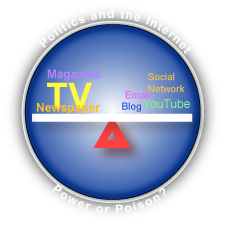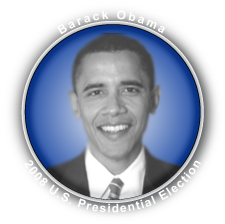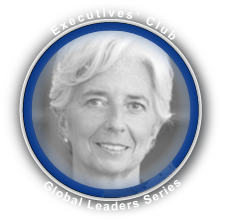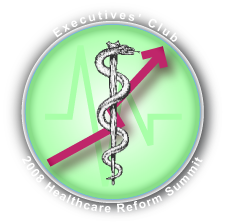Conventional Wisdom Scuttled—Disruption Preview—Business in the Batter’s Box
 Barack Obama’s presidential campaign was more than a major social media milestone because it ushered in a new relationship model among leaders and their supporters. Due to social media, an unprecedented number of individuals had a new kind of active, direct role in Obama’s campaign; moreover, I predict that the Obama campaign and imminent administration will change citizens’ and consumers’ expectations of “leader” and “follower” roles in government and business. Amazon.com changed consumers’ expectations about retail in general—information on demand, reviews, unbelievable variety at low prices—and a significant portion of Obama supporters will want to continue their support to “make the change happen.” These supporters will bring their changed expectations of action and collaboration to their vendors. That means your company. Barack Obama’s presidential campaign was more than a major social media milestone because it ushered in a new relationship model among leaders and their supporters. Due to social media, an unprecedented number of individuals had a new kind of active, direct role in Obama’s campaign; moreover, I predict that the Obama campaign and imminent administration will change citizens’ and consumers’ expectations of “leader” and “follower” roles in government and business. Amazon.com changed consumers’ expectations about retail in general—information on demand, reviews, unbelievable variety at low prices—and a significant portion of Obama supporters will want to continue their support to “make the change happen.” These supporters will bring their changed expectations of action and collaboration to their vendors. That means your company.
The Obama campaign is very instructive to business leaders because business customers are changing expectations of their leaders, as we’ll discuss in more detail below. As the Global Human Capital Journal is not primarily focused on politics, I am less interested in the fact that Obama was elected than how he was elected. Moreover, […]
As “the Internet” changed the rules of information access, Web 2.0 is changing how people are connecting with other people. Most organizations are not ready for it: all their stakeholders can find each other and start sharing insights without the organization even knowing about it. They are experiencing the slow boil*. […]
Cites International Mindset, Judgment and Flexibility—Ambiguity and Global Transformation Form the Backdrop
 The 2008 U.S. presidential election has been the most dramatic in recent history by any measure. Converging economic, cultural and political issues are increasing the level of discomfort among voters and raising the stakes. In endorsing Barack Obama, I have considered the candidates in several dimensions, but my primary perspective has been that of a management consultant. The United States is a client in crisis, and I have asked myself, “What kind of leader does the country need, given the challenges it faces?” Barack Obama is my prescription, although there may be unwelcome side effects. If circumstances were different, I might well have favored John McCain. The 2008 U.S. presidential election has been the most dramatic in recent history by any measure. Converging economic, cultural and political issues are increasing the level of discomfort among voters and raising the stakes. In endorsing Barack Obama, I have considered the candidates in several dimensions, but my primary perspective has been that of a management consultant. The United States is a client in crisis, and I have asked myself, “What kind of leader does the country need, given the challenges it faces?” Barack Obama is my prescription, although there may be unwelcome side effects. If circumstances were different, I might well have favored John McCain.
[…]
Demand drivers for enterprise social networks: global enterprises suffer innovation crisis while individuals seek employment security; cross-boundary collaboration is a win-win for enterprise and employee […]
Web 2.0 and the Mergers and Acquisitions Industry at the AM&AA reveals how digital social networks are affecting mergers and acquisitions in the mid-market
Reports of “Character Building” Market—Significant Parallels with High Tech Bust—Plus, the Emerging Web 2.0 Vein
 The sub-prime induced correction of the U.S. financial sector has changed the context around M&A during the last year, and mergers and acquisitions experts met last week to share success stories, lessons learned and admonitions at the Alliance of Mergers & Acquisition Advisors Summer Conference July 22-25, 2008 at Chicago’s Wyndham Hotel. I was asked to present a new talk, “Leveraging a Web 2.0 Ecosystem to Grow Your Business,” and I had the opportunity to attend some of the other sessions. I’ll summarize their key points before adding some thoughts on the promise that Web 2.0 and social networks bring to deal marketing due to significantly decreased transaction costs. The sub-prime induced correction of the U.S. financial sector has changed the context around M&A during the last year, and mergers and acquisitions experts met last week to share success stories, lessons learned and admonitions at the Alliance of Mergers & Acquisition Advisors Summer Conference July 22-25, 2008 at Chicago’s Wyndham Hotel. I was asked to present a new talk, “Leveraging a Web 2.0 Ecosystem to Grow Your Business,” and I had the opportunity to attend some of the other sessions. I’ll summarize their key points before adding some thoughts on the promise that Web 2.0 and social networks bring to deal marketing due to significantly decreased transaction costs.
AM&AA members hail from all parts of a rich ecosystem of investment bankers, attorneys, private equity, brokers, intermediaries, CPAs and others who specialize in every […]
French Finance Minister Declares French rEvolution in Economic Policy is a real-time case study with lessons for G7 Knowledge Economy transition—”Courage” to the rats—A new French realism?
 Illinois leaders were addressed by Her Excellency Christine Lagarde, Economy, Industry and Employment Minister, Republic of France at the special luncheon held in her honor by the Executives’ Club of Chicago at the Westin on 23 May 2008. Attending were Chicago Mayor Richard M. and Maggie Daley, a French delegation that included the Ambassador of France to the U.S. Pierre Vimont, the Head of Cabinet Christian Dufour, David Appia, Minister Counselor for Economic and Commercial Affairs, and numerous executives of Chicago Fortune 500 firms. Illinois leaders were addressed by Her Excellency Christine Lagarde, Economy, Industry and Employment Minister, Republic of France at the special luncheon held in her honor by the Executives’ Club of Chicago at the Westin on 23 May 2008. Attending were Chicago Mayor Richard M. and Maggie Daley, a French delegation that included the Ambassador of France to the U.S. Pierre Vimont, the Head of Cabinet Christian Dufour, David Appia, Minister Counselor for Economic and Commercial Affairs, and numerous executives of Chicago Fortune 500 firms.
If one were not listening attentively and willing to question stereotypes, it would have been too easy miss this intriguing story. However, as in all things “2.0,” profound change manifests slowly at first, and I detected a glimmer of disruption in France’s status quo. Having lived in West Berlin surrounded by the concrete reality of a wall that subsequently, unbelievably, came down, I ask myself, “What if France were […]
New Exit Strategy for Mature Manufacturers—Acquisition by Asian Firms shows how process excellence can inject new vitality into ailing manufacturers.
 Picture this: you are the CEO of a venerable manufacturer that has been besieged by price pressure, increased imports and high capital costs. Revenue has been barely edging up, and profits have been negative three of the last five years. You have had to lay off a significant portion of manufacturing personnel, many of whom had been with you more than a generation.Your ship is still taking on water despite best efforts, and you do not know where to turn. Picture this: you are the CEO of a venerable manufacturer that has been besieged by price pressure, increased imports and high capital costs. Revenue has been barely edging up, and profits have been negative three of the last five years. You have had to lay off a significant portion of manufacturing personnel, many of whom had been with you more than a generation.Your ship is still taking on water despite best efforts, and you do not know where to turn.
This was precisely the situation of several U.S. firms that took the unusual route of selling themselves to Indian firms that turned the companies around very quickly by applying sophisticated process and management expertise. In many cases, local employment increased because the companies became much more competitive. Here are two examples:
[…]
Geography 3.0, What It Is and What It Means predicts a new synthesis in the Knowledge Economy—fast forward to the past—Plus, the fire
 Noodles are largely driven by intuition and holistic mental doodling, and this one has been simmering a long time*. I believe that there is profound meaning in virtual and literal “mobility,” and I’ll explore its significance in terms geography and human relationships. Geography has always had a profound impact on how humans have lived and the organizations in which we have lived, and when its meaning shifts, our lives are transformed. This is of paramount importance because human relationships are currently transitioning from geography-based to interest-based. Many governments and businesses harbor business rules that assume geography-based relationships, and, unless they appreciate the shift to interest-based relationships, they will experience disruption’s spin cycle. Lose a turn. Don’t pass go ,^) Noodles are largely driven by intuition and holistic mental doodling, and this one has been simmering a long time*. I believe that there is profound meaning in virtual and literal “mobility,” and I’ll explore its significance in terms geography and human relationships. Geography has always had a profound impact on how humans have lived and the organizations in which we have lived, and when its meaning shifts, our lives are transformed. This is of paramount importance because human relationships are currently transitioning from geography-based to interest-based. Many governments and businesses harbor business rules that assume geography-based relationships, and, unless they appreciate the shift to interest-based relationships, they will experience disruption’s spin cycle. Lose a turn. Don’t pass go ,^)
Before exploring how these things will unfold in Part II, let’s review three geographies and four economies here in Part I…
[…]
“Yes,” Says Team of Healthcare Experts, Employer CEOs and Patient Representative at the Executives’ Club of Chicago, “But You Must Change Your Ways”
 Honestly Assessing Quality—Engaging Consumer Empowerment—Trading in the Ferrari for a Chevy Honestly Assessing Quality—Engaging Consumer Empowerment—Trading in the Ferrari for a Chevy
The Executives’ Club of Chicago convened its healthcare reform summit at the Hilton Chicago on 20 February 2008, drawing on diverse expertise. Ian Morrison, Ph.D., healthcare futurist, gave the keynote and moderated two panels: first, the healthcare expertise panel with Dean Harrison, CEO Northwestern Memorial Healthcare; William Novelli, CEO AARP; Scott P. Serota, CEO BlueCross BlueShield Association; and second, the business executive panel with Andrew M. Appel, Chairman AON Consulting; John A. Edwardson, CEO, CDW; John B. Menzer, Vice Chairman and Administrative Officer, Wal-Mart Stores. Robert L. Parkinson, CEO, Baxter Healthcare gave an insightful point of view on recommended actions to close the event.
There was broad agreement that the U.S. healthcare system was broken, and speakers offered excellent insights and perspectives about how to fix the system. However, what they didn’t say was as interesting as what they did, and I will address two key issues in […]
India Trade Minister Draws Chicago-India Parallels at Executives’ Club offers coverage of Shri Kamal Nath’s Chicago presentation. Key themes: new global economic architecture presages economic realignment and thinking beyond the obvious to tap emerging opportunities.
 Illinois leaders were addressed by His Excellency Shri Kamal Nath, Minister of Commerce and Industry, Republic of India. True to form, His Excellency struck chords of transformation, partnership, common interests and harmony at the lunch held in his honor at the University Club on 19 February 2008. Attending were Chicago Mayor Richard M. Daley, Mr. Rajinder Bedi, Managing Director of the Illinois Office of Trade and Investment, The Honorable Susan Schwab, U.S. Trade Representative, Craig S. Donohue, Chief Executive Officer, CME Group and John Estey, President & Chief Executive Officer, SC Electric Company. Illinois leaders were addressed by His Excellency Shri Kamal Nath, Minister of Commerce and Industry, Republic of India. True to form, His Excellency struck chords of transformation, partnership, common interests and harmony at the lunch held in his honor at the University Club on 19 February 2008. Attending were Chicago Mayor Richard M. Daley, Mr. Rajinder Bedi, Managing Director of the Illinois Office of Trade and Investment, The Honorable Susan Schwab, U.S. Trade Representative, Craig S. Donohue, Chief Executive Officer, CME Group and John Estey, President & Chief Executive Officer, SC Electric Company.
Reading between the lines, the U.S. and India stand at a significant turning point: India’s impressive economic growth is a significant element of the ongoing redistribution of global economic power—which holds excellent opportunities for U.S. businesses and workers that are looking for it.
[…]
|
|
 Barack Obama’s presidential campaign was more than a major social media milestone because it ushered in a new relationship model among leaders and their supporters. Due to social media, an unprecedented number of individuals had a new kind of active, direct role in Obama’s campaign; moreover, I predict that the Obama campaign and imminent administration will change citizens’ and consumers’ expectations of “leader” and “follower” roles in government and business. Amazon.com changed consumers’ expectations about retail in general—information on demand, reviews, unbelievable variety at low prices—and a significant portion of Obama supporters will want to continue their support to “make the change happen.” These supporters will bring their changed expectations of action and collaboration to their vendors. That means your company.
Barack Obama’s presidential campaign was more than a major social media milestone because it ushered in a new relationship model among leaders and their supporters. Due to social media, an unprecedented number of individuals had a new kind of active, direct role in Obama’s campaign; moreover, I predict that the Obama campaign and imminent administration will change citizens’ and consumers’ expectations of “leader” and “follower” roles in government and business. Amazon.com changed consumers’ expectations about retail in general—information on demand, reviews, unbelievable variety at low prices—and a significant portion of Obama supporters will want to continue their support to “make the change happen.” These supporters will bring their changed expectations of action and collaboration to their vendors. That means your company.
 The 2008 U.S. presidential election has been the most dramatic in recent history by any measure. Converging economic, cultural and political issues are increasing the level of discomfort among voters and raising the stakes. In endorsing Barack Obama, I have considered the candidates in several dimensions, but my primary perspective has been that of a management consultant. The United States is a client in crisis, and I have asked myself, “What kind of leader does the country need, given the challenges it faces?” Barack Obama is my prescription, although there may be unwelcome side effects. If circumstances were different, I might well have favored John McCain.
The 2008 U.S. presidential election has been the most dramatic in recent history by any measure. Converging economic, cultural and political issues are increasing the level of discomfort among voters and raising the stakes. In endorsing Barack Obama, I have considered the candidates in several dimensions, but my primary perspective has been that of a management consultant. The United States is a client in crisis, and I have asked myself, “What kind of leader does the country need, given the challenges it faces?” Barack Obama is my prescription, although there may be unwelcome side effects. If circumstances were different, I might well have favored John McCain. The sub-prime induced correction of the U.S. financial sector has changed the context around M&A during the last year, and mergers and acquisitions experts met last week to share success stories, lessons learned and admonitions at the Alliance of Mergers & Acquisition Advisors Summer Conference July 22-25, 2008 at Chicago’s Wyndham Hotel. I was asked to present a new talk, “Leveraging a Web 2.0 Ecosystem to Grow Your Business,” and I had the opportunity to attend some of the other sessions. I’ll summarize their key points before adding some thoughts on the promise that Web 2.0 and social networks bring to deal marketing due to significantly decreased transaction costs.
The sub-prime induced correction of the U.S. financial sector has changed the context around M&A during the last year, and mergers and acquisitions experts met last week to share success stories, lessons learned and admonitions at the Alliance of Mergers & Acquisition Advisors Summer Conference July 22-25, 2008 at Chicago’s Wyndham Hotel. I was asked to present a new talk, “Leveraging a Web 2.0 Ecosystem to Grow Your Business,” and I had the opportunity to attend some of the other sessions. I’ll summarize their key points before adding some thoughts on the promise that Web 2.0 and social networks bring to deal marketing due to significantly decreased transaction costs. Illinois leaders were addressed by Her Excellency Christine Lagarde, Economy, Industry and Employment Minister, Republic of France at the special luncheon held in her honor by the Executives’ Club of Chicago at the Westin on 23 May 2008. Attending were Chicago Mayor Richard M. and Maggie Daley, a French delegation that included the Ambassador of France to the U.S. Pierre Vimont, the Head of Cabinet Christian Dufour, David Appia, Minister Counselor for Economic and Commercial Affairs, and numerous executives of Chicago Fortune 500 firms.
Illinois leaders were addressed by Her Excellency Christine Lagarde, Economy, Industry and Employment Minister, Republic of France at the special luncheon held in her honor by the Executives’ Club of Chicago at the Westin on 23 May 2008. Attending were Chicago Mayor Richard M. and Maggie Daley, a French delegation that included the Ambassador of France to the U.S. Pierre Vimont, the Head of Cabinet Christian Dufour, David Appia, Minister Counselor for Economic and Commercial Affairs, and numerous executives of Chicago Fortune 500 firms. Picture this: you are the CEO of a venerable manufacturer that has been besieged by price pressure, increased imports and high capital costs. Revenue has been barely edging up, and profits have been negative three of the last five years. You have had to lay off a significant portion of manufacturing personnel, many of whom had been with you more than a generation.Your ship is still taking on water despite best efforts, and you do not know where to turn.
Picture this: you are the CEO of a venerable manufacturer that has been besieged by price pressure, increased imports and high capital costs. Revenue has been barely edging up, and profits have been negative three of the last five years. You have had to lay off a significant portion of manufacturing personnel, many of whom had been with you more than a generation.Your ship is still taking on water despite best efforts, and you do not know where to turn. Honestly Assessing Quality—Engaging Consumer Empowerment—Trading in the Ferrari for a Chevy
Honestly Assessing Quality—Engaging Consumer Empowerment—Trading in the Ferrari for a Chevy Illinois leaders were addressed by His Excellency Shri Kamal Nath, Minister of Commerce and Industry, Republic of India. True to form, His Excellency struck chords of transformation, partnership, common interests and harmony at the lunch held in his honor at the University Club on 19 February 2008. Attending were Chicago Mayor Richard M. Daley, Mr. Rajinder Bedi, Managing Director of the Illinois Office of Trade and Investment, The Honorable Susan Schwab, U.S. Trade Representative, Craig S. Donohue, Chief Executive Officer, CME Group and John Estey, President & Chief Executive Officer, SC Electric Company.
Illinois leaders were addressed by His Excellency Shri Kamal Nath, Minister of Commerce and Industry, Republic of India. True to form, His Excellency struck chords of transformation, partnership, common interests and harmony at the lunch held in his honor at the University Club on 19 February 2008. Attending were Chicago Mayor Richard M. Daley, Mr. Rajinder Bedi, Managing Director of the Illinois Office of Trade and Investment, The Honorable Susan Schwab, U.S. Trade Representative, Craig S. Donohue, Chief Executive Officer, CME Group and John Estey, President & Chief Executive Officer, SC Electric Company.